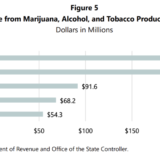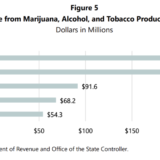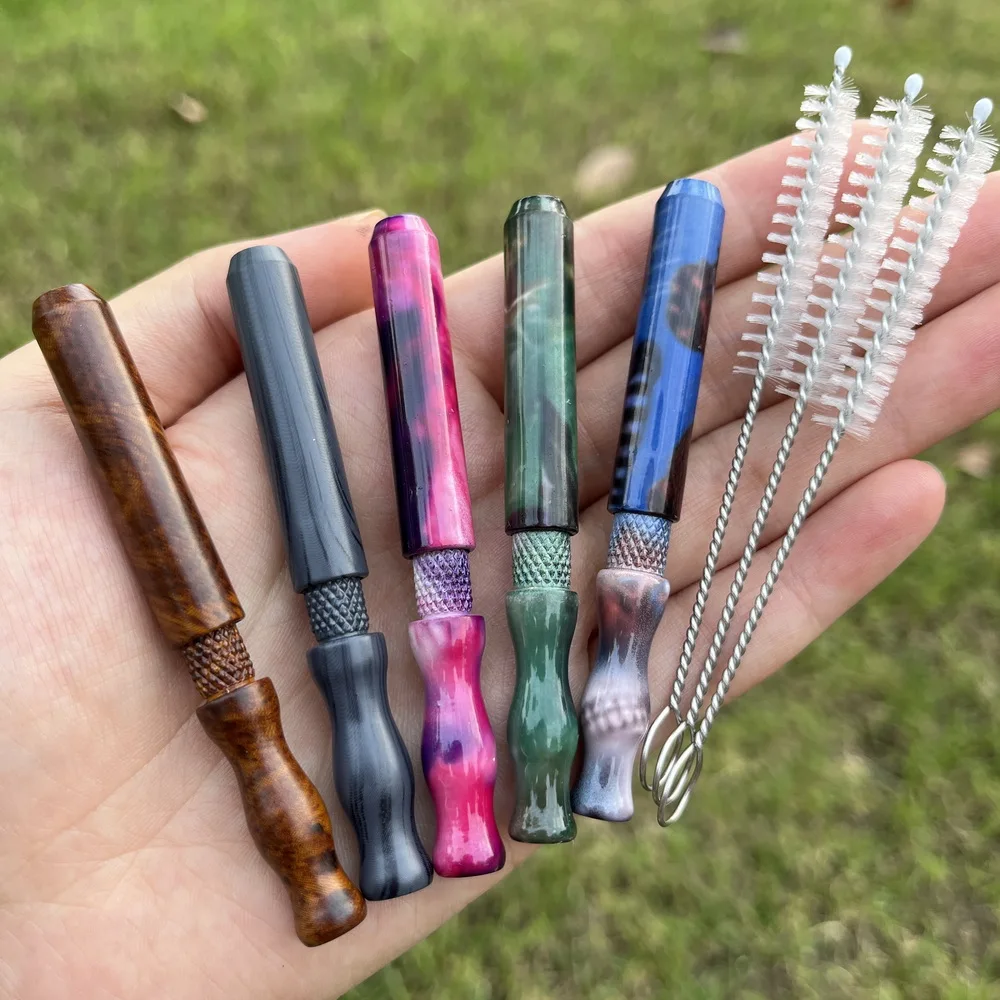“I think the approach should be: Keep it small, keep it restricted and do floor amendments if they want to expand it.”
By Zach Wendling, Nebraska Examiner
The path forward for a medical cannabis bill in the Nebraska Legislature appears more uncertain after a committee chair tasked his members with deciding what medical conditions would qualify for access in the state and which forms of medical cannabis would be allowed.
State Sen. Rick Holdcroft (R) of Bellevue, chair of the Legislature’s General Affairs Committee, described that task to his seven fellow committee members Wednesday. He provided them lists to choose a handful from the “debilitating medical conditions” approved in neighboring Iowa, as well as what he said were the 42 conditions approved across the 38 other states with medical cannabis laws.
Holdcroft described the comprehensive list as “everything but the kitchen sink” in talking with Nebraska Examiner, explaining that the “people were silent” on what medical conditions would apply when they overwhelmingly adopted legalizing medical cannabis in November.
“We make it legal for anything and everything, it’s essentially recreational marijuana at that point,” Holdcroft said, a stance advocates of the ballot measure argue is wrong.
Legislative Bill 677, from State Sen. Ben Hansen (R) of Blair, an effort aiming to flesh out a state regulatory scheme for medical cannabis, already faced an uphill climb to get out of committee among conservatives. Hansen, a Republican with a more Libertarian bent, said he still hopes to get his bill out of committee as “clean and popular as we can.”
Some advocates who championed the 2024 ballot measure say their support of the bill could be in jeopardy if Holdcroft’s more limited approach is taken up. They and Hansen continue to hunt for a path forward that remains closer to voters’ intent.
“It’s almost like whatever we kick out of committee is going to be ‘the’ bill that I would like to see, that the industry would like to see, that the people who voted for it would like to see,” Hansen said. “And that the Legislature can live with, at least 33 people can.”
Holdcroft voiced his goal to get an amended version of LB 677 advanced by the end of next week. Any version would need at least five votes.
‘The people have spoken’
Crista Eggers, executive director of Nebraskans for Medical Marijuana and 2024 campaign manager for the ballot measure, said the task that Holdcroft gave to his committee is disrespectful and that those concessions, among others, should be off the table.
She said advocates didn’t work so hard, gathering petition signatures and stories of pain and suffering from Nebraskans, to let a few senators decide who should be helped. Eggers has advocated on behalf of her youngest son, Colton, and said she’d never tell someone one child’s life was more worthy than someone else’s.
“Shame on them for trying to do that,” Eggers said.
Eggers thanked Hansen for all his work in hearing from supporters, respecting ballot language and helping advocates. But she said the time for other lawmakers to voice opinions on what is “right” is long overdue.
Lawmakers had their chance, but they repeatedly pushed supporters away, Eggers explained, and “essentially shut the door on our face each and every time” until the ballot was the only option.
The measure to legalize up to 5 ounces of medical cannabis with a health care practitioner’s recommendation passed with more than 71 percent of the vote, including majority support in all 49 legislative districts. A second measure, to set up the regulatory scheme through a new Nebraska Medical Cannabis Commission, passed with 67 percent. It got majority support in 46 legislative districts.
Eggers said that while the campaign thought companion legislation to clarify the state’s regulatory approach could be a “best scenario” to help enact the will of the people, she said some lawmakers had gone too far.
“We are not in a position any longer, now that the people have spoken, to let our initiative be gutted into something that is not at all what the people passed,” Eggers said.
‘Keep it small, keep it restricted’
Holdcroft said he would like his committee to wade through the lists and identify about six conditions that would qualify for access to medical cannabis, though he said he wouldn’t object to the Iowa list of:
- Cancer, if the underlying condition or treatment produces severe or chronic pain, nausea or severe vomiting, or cachexia or severe wasting.
- Seizures, including epilepsy.
- Multiple sclerosis with severe or persistent muscle spasms.
- AIDS or HIV.
- Crohn’s disease.
- Amyotrophic lateral sclerosis (ALS), or Lou Gehrig’s disease.
- Any terminal illness, with a probable life expectancy of under one year, if the illness or its treatment produces severe or chronic pain, nausea or severe vomiting, or cachexia or severe wasting.
- Parkinson’s disease.
- Chronic pain.
- Post-traumatic stress disorder (PTSD).
- Severe, intractable autism with self-injurious or aggressive behaviors (including pediatric).
- Ulcerative colitis.
- Corticobasal degeneration.
Iowa state law also creates a path to expanding conditions via a recommendation by the Iowa Medical Cannabidiol Board and later adoption by the Iowa Board of Medicine.
“I think the approach should be: Keep it small, keep it restricted and do floor amendments if they want to expand it,” Holdcroft said.
According to Holdcroft’s second list, cancer, epilepsy or seizures and HIV or AIDS are listed in “every” state; multiple sclerosis is listed in “nearly” all states; chronic pain, PTSD and Chrohn’s disease or inflammatory bowel disease are listed in “most” states; and Parkinson’s disease, glaucoma or ALS are listed in “many” states.
Other conditions on Holdcroft’s lists range from sleep apnea, menstrual pain, sickle cell disease, tinnitus or “any condition for which a physician would otherwise prescribe an opioid” to Lewy body disease, Alzheimer’s, addiction recovery, hepatitis C or Huntington’s disease.
“Conditions like severe nausea, cachexia/wasting syndrome and terminal illness are also frequently included,” Holdcroft’s handouts state.
Holdcroft said three conditions are likely must-haves: childhood epilepsy, terminal cancer and lifelong chronic pain.
Part of that is because children with debilitating seizures were the face of the campaign, as moms and dads led the charge for more than 11 years at the statehouse.
One condition that Holdcroft cast doubt on and said would need to be more specific: PTSD, or post-traumatic stress disorder.
Holdcroft said the lists are not final, or even preliminary, but should serve as a starting point.
‘Do as little as necessary’
State Sen. John Cavanaugh (D) of Omaha, committee vice chair, said lawmakers should do as little as needed to give structure to voters’ wishes but not “undermine” or “walk back” their will. He noted voters purposefully approved up to 5 ounces of cannabis and no specific conditions.
Edison McDonald, executive director of the Arc of Nebraska, said during the bill’s hearing not to limit the conditions to prevent needing annual bills to expand the list.
Cavanaugh said the arbitrary deliberations could exclude voters who specifically supported the measures for themselves or loved ones.
“I think when you start picking arbitrary numbers of maladies that will qualify, that is a disservice,” he said.
Cavanaugh said he always thinks of one of his constituents alongside marijuana regulations. He described her as somebody’s grandma in a fancy house in the Dundee neighborhood in Omaha, “not somebody you would necessarily think of as an advocate for legal cannabis.” She was, he said, for her husband who had stomach cancer and had tried many drugs to help.
Cavanaugh’s district in midtown Omaha had the highest support for the regulatory measure.
“My approach would be to do as little as necessary to make sure that people are going to be able to access this safely and legally,” Cavanaugh said.
He suggested delegating authority to put together or research qualifying conditions to the new Medical Cannabis Commission.
What senators can ‘live with’
Hansen said he is working hard with committee members to see what they can “live with,” but if those changes differ with what he or advocates can live with, then the bill will be adjusted during debate.
However, as recent filibuster-plagued sessions have shown, opponents can use legislative rules to block how many amendments can be added, further complicating the bill’s path toward securing the 33 votes it would need to become law.
Under the Nebraska Constitution, amending voter-approved laws requires two-thirds of the 49-member Legislature.
Hansen said it may be necessary to get something passed first, to set up the rules and regulations and get the framework established, and not “eat the whole apple in one sitting.”
Hansen repeated the importance of getting something passed in 2025 as the voter-approved regulatory law is set to take effect in less than three months, making it virtually impossible for the new Medical Cannabis Commission—which has taken zero steps toward regulations—to have formal guidance in place by July 1. State licensing is supposed to begin by October 1.
The Attorney General’s Office has threatened to sue if the cannabis commission begins licensing.
Holdcroft said the bill being considered would delay both the regulatory and licensing deadlines by at least three months.
The law legalizing medical cannabis with a written doctor’s note took effect December 12, in all forms and for all conditions. However, with no guidance from the Nebraska Department of Health and Human Services, many advocates have told the Nebraska Examiner that doctors are refusing to recommend the drug that would need to be purchased out of state.
Holdcroft has suggested lowering the 5-ounce authorization, starting negotiations at 300 milligrams (0.21 percent of the current limit) that freshman State Sen. Jared Storm of David City proposed via LB 483. Holdcroft said that is probably too low, but he wants a conversation. The committee chair has also suggested delivery methods start with pills or tinctures, as outlined in Storm’s bill, and expand from there.
Smoking as a permissible form of use is a roadblock for a majority of the committee.
Recreational marijuana
Much of the hesitation revolves around fear of legalizing recreational marijuana, which Hansen noted many on the committee “vehemently oppose”—as do Nebraska Attorney General Mike Hilgers and U.S. Sen. Pete Ricketts (R-NE), who are urging the Legislature to pass no cannabis-related laws this spring.
Hansen said avoidance could risk potential legal challenges or public backlash, one of the “fastest ways” he said to get voters to consider recreational marijuana.
“One of the fastest tracks of that happening in Nebraska is not doing what the people voted for or cutting this way too short or restricting it too much, or not passing something at all,” Hansen said.
Hansen said that if that did happen, he wouldn’t be surprised if come November 2026, voters are left weighing whether to approve recreational marijuana. The Blair senator has described the path ahead, with no law change, where the commission could continue to have no funds and no way to do its job, as the “Wild West.”
This story was first published by Nebraska Examiner.





























